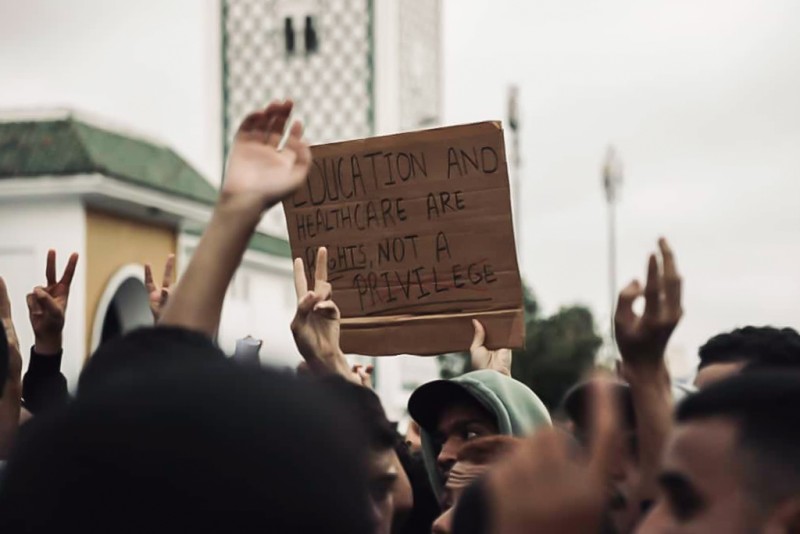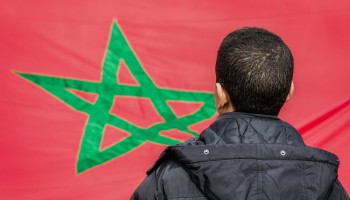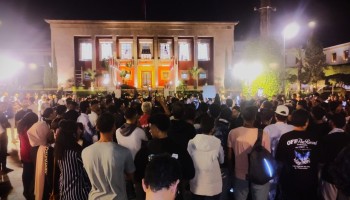Reported by
A month after nationwide protests erupted across Morocco demanding an end to corruption and reforms to health and education services, demonstrators returned to the streets over the weekend to call for the release of more than 1,000 detained for taking part in the rallies.
Mobilizing under the slogan #Free_Koulchi—meaning “free everyone”—young protesters led by the Gen Z 212 movement, organized fresh demonstrations Saturday and Sunday after a brief lull since October 16.
Since September 27, authorities have arrested more than 2,100 protesters, including 330 minors, according to the Moroccan Association for Human Rights (AMDH). The group said about 1,400 remain in detention.
The AMDH condemned the government’s response to the unrest, accusing authorities of violating “their obligations under international human rights law and domestic laws.”
“After failing to curb the planned peaceful protests, the authorities resorted to heavy security crackdowns, occupying the announced protest sites, carrying out intensive arrests, chasing and harassing protesters, and restricting citizens' freedom of movement and travel,” the group said in a statement seen by OCCRP.
As of October 22, more than 240 court rulings had been issued, including prison sentences of up to 15 years, AMDH president Souad Brahma said.
“These are not just numbers; they are the high cost of dreaming of a better homeland,” the youth-led Gen Z 212 movement said in response.
The Interior Ministry did not respond to the claims made in the report, and the government has not issued a statement addressing the protesters’ demands to release detainees. Also, a Moroccan government spokesperson did not respond to OCCRP's request for comment on AMDH's report.
Earlier the month, Amnesty International urged Moroccan authorities to conduct an immediate and independent investigation into the crackdown and to drop charges against those arrested for exercising their right to protest.
The nationwide protests began with a small gathering outside a hospital in Agadir, where eight pregnant women reportedly died due to poor conditions and inadequate care. What started as local outrage has since grown into a broader call for accountability, and now for the release of those jailed.
Speaking to OCCRP at a peaceful gathering, one protester said that while freeing detainees has become the movement’s main demand, its original goals remain unchanged. Demonstrators are still calling for better health and education services, and for corrupt officials to be held accountable “so they can serve as an example.”






